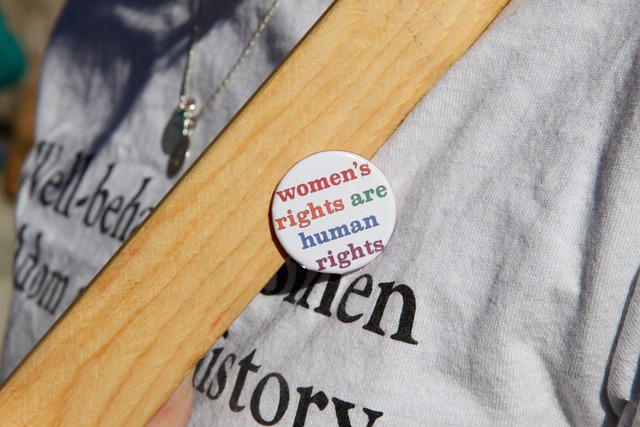American women have always been involved in politics. They may have been excluded from party membership, voting, or running for office but they were vocal about political issues and participated in party activities. Women in western territories were voting long before the national woman suffrage amendment of 1920.
There were so many great women who were active in women’s efforts to gain economic, political, and social equality in America. Before women had the right to vote, they were influencing powerful men and working through voluntary associations. Many joined women’s organizations to gain greater access to leadership roles and more control over their programs. Those without the time or opportunity to join an organized society protested, picketed, and took part in crowd activities when circumstances like food shortages, price gouging, and wage cuts pushed them to the edge of desperation.
The fight for the right of women to vote met various challenges at the beginning of the 20th century. America wasn’t receptive to women casting a ballot. The country couldn’t embrace the idea of Black women participating, but they did. The 22 bold founders of Delta Sigma Theta Sorority, a Black collegiate organization, were among them. By the second decade of the 20th century, thousands of American women representing different races, ethnic origins and social classes had joined the movement.
On March 3, 1913, a large gathering of women jammed the streets of Washington, D.C. to participate in the Women’s Suffrage Parade. They demanded a constitutional amendment guaranteeing women the right to vote. The parade was spearheaded by Alice Paul and the National American Woman Suffrage Association. Over five thousand women marched up Pennsylvania Avenue. The organizers purposefully hosted the parade one day before the inauguration of President-elect Woodrow Wilson. The women walked from the U.S. Capitol toward the Treasury Building.
Some of the spectators were not kind. Some marchers were threatened, tripped, and attacked. Police on the parade route did little to help. By the end of the day, over 100 women were hospitalized for injuries. Members of the Black sorority endured threats, racial epithets, and violence. They were spat on, pushed, and repeatedly pushed by men. Some white women, there to demand and celebrate their right to vote, joined in the violence toward the sorority members.
The women marchers did not give up, they finished the parade. Their experiences led to major news stories and congressional hearings. Historians credited the 1913 parade for giving the suffrage movement a new wave of purpose and inspiration. Delta member, Ida B. Wells, would go on to found the first African American women’s suffrage organization, and she and others crusaded against lynching.
It took another seven years for the 19th Amendment to be ratified on August 18, 1920. These brave women are just some of the women who made a more just and prosperous future for all Americans.
Critics of the movement accused them of wanting the vote to overturn the social order, elevating women above men, or allowing women to act as if they were men. This was not what they wanted. Most women wanted the vote because it meant full citizenship. Many suffragists were convinced the vote would lead to an end to male control over women’s earnings, careers, offspring, and property. They were ignored by men in political positions and decided to do something about it.
The first political cause to attract early 19th century American women in large numbers was the abolition of slavery. The abolitionist movement included hundreds of white and free Black women. Some women boycotted goods made by the labor of enslaved people.
As the women groups grew, some women excluded women unlike themselves. Some white women abolitionist groups invited Black women to participate but neglected their concerns or treated them condescendingly. Frustrated by their experience in integrated organizations, they found their own organizations. They went on to play central roles in the anti-segregation and anti-lynching movements of the early 20th century. Delta Sigma Theta member, Ida B. Wells, would go on to found the first African American women’s suffrage organization and she and other’s crusaded against lynching.
Francie Mae. March 26, 2023.
References
Brown, Stacy M. Women’s Suffrage Movement. Washington Informer. “Delta Sigma Theta Founders Were on Front lines of Suffrage Movement.” August 28, 2019. Web. Accessed March 26, 2023.
Cohen, Danielle. Obamawhitehouse.archives.gov. “This Day in History: The 1913 Women’s Suffrage Parade.” March 3, 2016. Web. Accessed March 26, 2023.
Perry, Elizabeth Israels. 1995. Women In Action: Rebels and Reformers 1920-1980. Washington, D.C. League of Women Voters.
So
